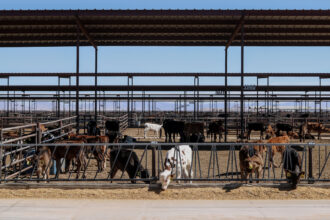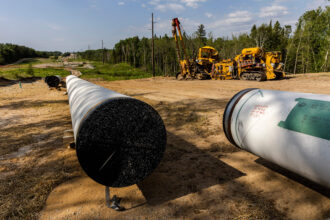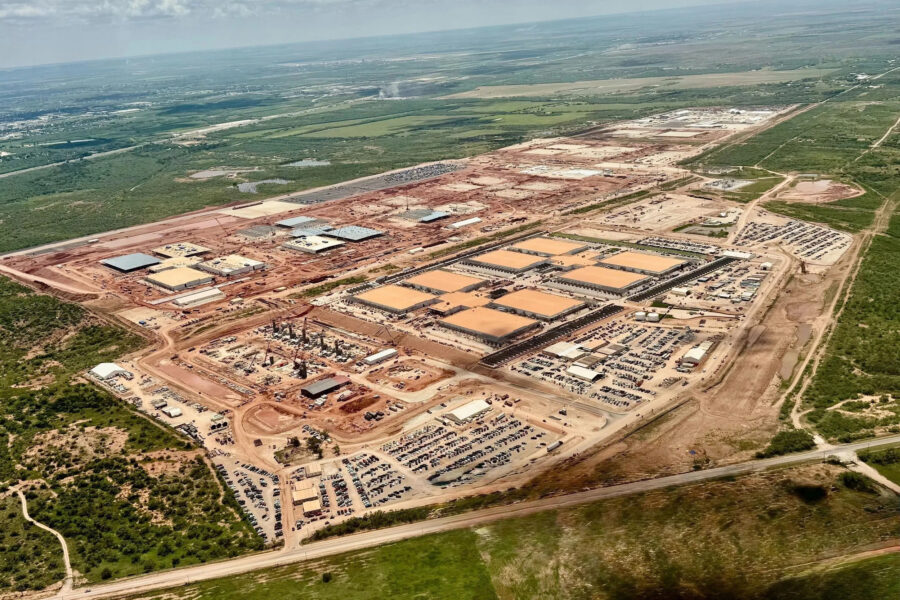Nebraska’s governor will call a special session of the state’s legislature over TransCanada Corp’s proposed oil sands pipeline that would cross ecologically sensitive areas in his state, an aide said.
Governor Dave Heineman does not oppose the Canada-to-Texas pipeline outright but wants TransCanada to change the route away from Nebraska’s Sand Hills region, which sits atop the Ogallala Aquifer, one of the largest sources of water for farms in the central United States.
If Nebraska succeeds in changing the route for the Alberta-to-Texas pipeline, it could add delays for the project. The pipeline would take oil sands crude from Alberta to Gulf Coast refineries, and potentially to its ports for export.
Supporters say the line would provide thousands of jobs and increase imports from a friendly neighbor. Opponents say oil sands crude causes more greenhouse gas emissions and that the petroleum is more corrosive to pipelines than average crude oils.
Last week, Mike Flood, the speaker of the state legislature, advised against a measure that would force TransCanada to move the right-of-way from the Sand Hills, saying such a move would unlikely hold up in court.
TransCanada has said it is too late in the federal approval process to move the proposed path for the line.
The U.S. State Department hopes to decide whether to greenlight the 700,000-barrels-per-day or more pipeline by the end of this year.
About This Story
Perhaps you noticed: This story, like all the news we publish, is free to read. That’s because Inside Climate News is a 501c3 nonprofit organization. We do not charge a subscription fee, lock our news behind a paywall, or clutter our website with ads. We make our news on climate and the environment freely available to you and anyone who wants it.
That’s not all. We also share our news for free with scores of other media organizations around the country. Many of them can’t afford to do environmental journalism of their own. We’ve built bureaus from coast to coast to report local stories, collaborate with local newsrooms and co-publish articles so that this vital work is shared as widely as possible.
Two of us launched ICN in 2007. Six years later we earned a Pulitzer Prize for National Reporting, and now we run the oldest and largest dedicated climate newsroom in the nation. We tell the story in all its complexity. We hold polluters accountable. We expose environmental injustice. We debunk misinformation. We scrutinize solutions and inspire action.
Donations from readers like you fund every aspect of what we do. If you don’t already, will you support our ongoing work, our reporting on the biggest crisis facing our planet, and help us reach even more readers in more places?
Please take a moment to make a tax-deductible donation. Every one of them makes a difference.
Thank you,











